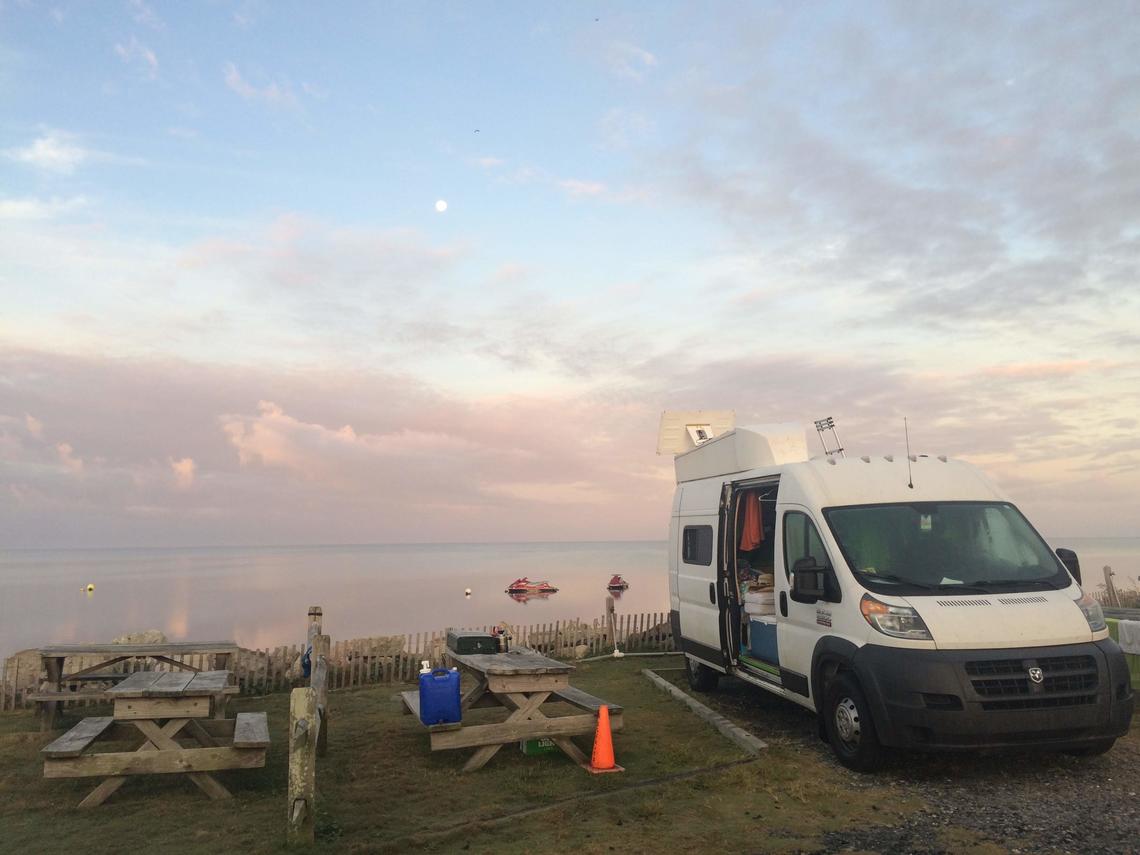Nov. 6, 2018
Explore the many roads from grad school to career at Nov. 14 symposium

Here’s the good news: You don’t have to live in a crawl space or a van to forge a successful career out of graduate school (even if it works for some people).
The road from a PhD to a career can vary wildly. That much is clear talking to Gary Barron, City of Calgary research social planner, and Dr. Christine Sharp, PhD, Faculty of Science outreach and engagement specialist. Each of them found unique ways to channel grad studies into successful careers.
Barron and Sharp are two of 17 panellists sharing their perspectives on career preparation at Invest In Your Future, a free, full-day grad student career symposium hosted by the Faculty of Graduate Studies Nov. 14.
Strategizing for a dream job
Barron’s path shows the value of being strategic in one’s studies. About to complete his PhD in sociology, Barron has held his current full-time role for the last couple of years of his degree. It’s a “dream job” in which he applies expertise in qualitative and quantitative research to inform policy on issues ranging from Indigenous relations and gender equity to the impact of low-income transit passes.
Coming out of a string of contracts completed as a graduate student, it’s a wonder how Barron does it all with a young family in the mix. His success reflects a history of goal-setting and sacrifice. Working in the service industry, he saved up a down payment for a modest mortgage by the age of 20. “I lived in the crawl space so that I could rent all the rooms out,” he says with a laugh.
Playing the long game
That pragmatic will to accept short-term pain for long-term gain helps explain Barron’s success. He’s built a career strategically out of opportunities he began pursuing after his bachelor’s degree in psychology and sociology, when he spent a gap year with Alberta Health Services before grad school.
“I discovered that it’s important to be able to apply knowledge. For example, I learned how to assemble and organize a team for a large project,” says Barron. “Talking to older students about work prospects, I realized it was a good tactic to develop strong, generalist research skills.”
Throughout his graduate degrees, he built on his applied skills and experience through short-term contracts. “Try to build a reputation for doing good work,” suggests Barron. “I supplemented my teaching assistantship by asking around and finding consulting opportunities with the Office of the Provost, followed by others in nursing, family medicine, not-for-profits and private business.”

Sharp and her spouse lived in their van to enjoy some of their other interests outside of academics.
Christine Sharp
Evolving interests and opportunities
Barron pursued a career strategy from the outset of graduate school. That’s one approach; for others, the road to a career is more exploratory with opportunities emerging alongside evolving interests and self-discovery.
Such is the case for Sharp, whose role with the Faculty of Science is an “alt-ac” (alternative academic) position, or non-academic university role.
Sharp didn’t start out pursuing an alt-ac job. Assuming she would have an academic career, she completed a BSc and PhD in Environmental Microbiology at the University of Calgary, followed by a postdoctoral appointment with Dr. Marc Strous, PhD, in geoscience. Over time, she became increasingly interested in science communication.
“My values had changed. My life outside of academics was very active. I’m an avid backcountry skier and mountain biker, and my spouse and I spent some time living in our van enjoying those pursuits,” says Sharp. “I realized that, although I love science, I couldn’t see myself spending the next 10 years working day-to-day in a lab. I wanted to spend my time sharing and promoting science to everyone!”
Emerging career directions
Looking back, Sharp sees how the opportunities she pursued alongside research became central to her career path.
Early in her postdoc, she attended a workshop on teaching and introduced herself to the speaker, Dr. Leslie Reid, vice-provost (teaching and learning). The chat led to a co-teaching opportunity in which Reid mentored Sharp.
From there, Sharp continued to feed her passion for science education. As a postdoc, she led a team that created a four-week elementary school program bringing miniature biofuel ecosystems into classrooms for some seriously fascinating hands-on learning.
Sharp also helped form Solar Biocells, a startup intent on scaling the biofuel concept out of the classroom; a pilot plant is now being built on campus. Joining the university’s innovation ecosystem gave Sharp more experience bringing science to a general audience. In her current role as outreach specialist, she’s making a career of helping academics share complex knowledge with the broader public.
“It’s important to have open-ended conversations about career goals with your supervisor,” says Sharp, stressing the importance of creating your own opportunities. “Be willing to say ‘Here’s where I want to go, can you help me get there?’”
Invest In Your Future 2018 features Barron, Sharp and other panellists discussing human resource perspectives on hiring, as well as alt-ac, government, not-for-profit and tech careers.
